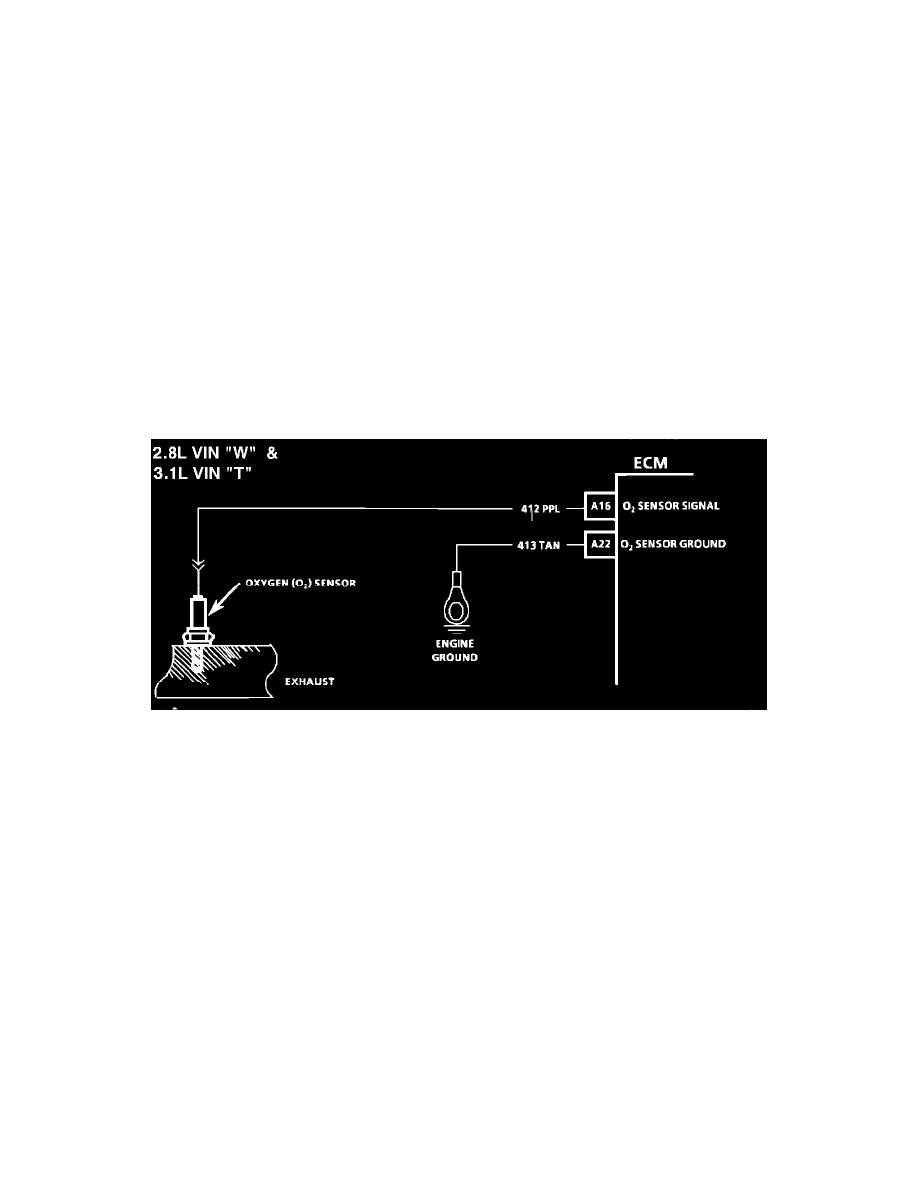Grand Prix V6-191 3.1L (1989)

condition is unchanged, the IAC is not at fault. There is a system problem.
2.
Be sure to disconnect the IAC valve prior to this test. The test light will confirm the ECM signals by a steady or flashing light on all circuits.
3.
IAC wiring is routed from the ECM through a mini harness. Faulty connection or shorted wires could result in poor IAC operation.
4.
This test checks for an internal short between the IAC coils.
Diagnostic Aids:
A slow unstable idle may be caused by a system problem that cannot be overcome by the IAC. "Scan" counts will be above 80 counts if idle is too low
and "0" counts if it is too high.
^
System too lean (high air/fuel ratio) Idle speed may be too high or too low. Engine speed may vary up and down, disconnecting IAC does not help.
This may set Code 44.
"Scan" and/or voltmeter will read an oxygen sensor output less than 300 mV (.3 volt). Check for low regulated fuel pressure or water in fuel. A lean
exhaust with an oxygen sensor output fixed above 800 mV (.8 volt) will be a contaminated sensor, usually silicone. This may also set a Code 45 or 61.
^
System too rich (low air/fuel ratio) Idle speed too low. "Scan" counts usually above
80.
System obviously rich and may exhibit black smoke exhaust. "Scan" tool and/or voltmeter will read an oxygen sensor signal fixed above 800
mV (.8 volt). Check:
-
For fuel in pressure regulator hose
-
High fuel pressure
-
Injector leaking or sticking.
^
Throttle body Remove IAC and inspect bore for foreign material or evidence of IAC valve dragging the bore.
^
A/C compressor or la failure See CHART C-10 if the A/C control relay drive circuit is shorted to ground or, if the relay is faulty, an idle problem
may exist.
^
Refer to "Rough, Unstable, Incorrect Idle or Stalling" in "Symptoms" in Section "B".
CODE 44
OXYGEN SENSOR CIRCUIT (LEAN EXHAUST INDICATED)
2.8L (VIN W) & 3.1L (VIN T) "A", "J","L","W" CARLINE (PORT)
Circuit Description:
The ECM supplies a voltage of about .45 volt between terminals "A16" and "A22". (If measured with a 10 megohm digital voltmeter, this may read as
low as .32 volt.) The O2 sensor varies the voltage within a range of about 1 volt if the exhaust is rich, down through about .10 volt if exhaust is lean. The
sensor is like an open circuit and produces no voltage when it is below about 315~C (600~F). An open sensor circuit or cold sensor causes "Open Loop"
operation.
Test Description:
Numbers below refer to circled numbers on the diagnostic chart. Code 44 will set if
^
Voltage on CKT 412 remains below .2 volt for 60 seconds or more;
^
The system is operating in "Closed Loop."
Diagnostic Aids:
Using the "Scan," observe the block learn values at different rpm and air flow conditions. The "Scan" also displays the block cells, so the block learn
values can be checked in each of the cells to determine when the Code 44 may have been set. If the conditions for Code 44 exists the block learn values
will be around 150.
^
Idle Air Control (IAC) Valve: A faulty IAC circuit can set a Code 44. Use CHART C-2B to verify proper operation of IAC valve.
^
O2 Sensor Wire: Sensor pigtail may be mispositioned and contacting the exhaust manifold.
^
Check for intermittent ground in wire between connector and sensor.
^
Lean Injector(s): Perform injector balance test CHART C-2A.
^
Fuel Contamination: Water, even in small amounts, near the in-tank fuel pump inlet can be delivered to the injectors. The water causes a lean
exhaust and can set a Code 44.
^
Fuel Pressure: System will be lean if pressure is too low. It may be necessary to monitor fuel pressure while driving the car at various road speeds
